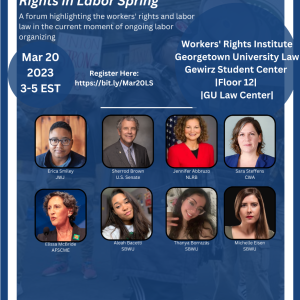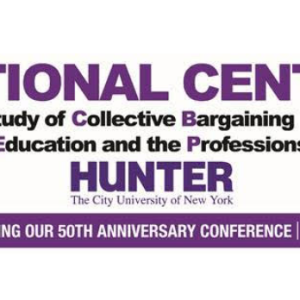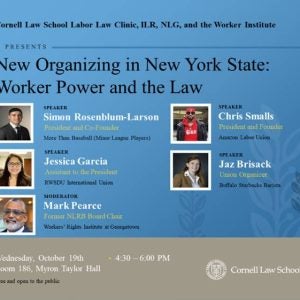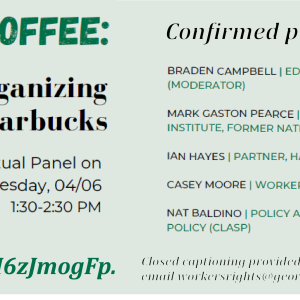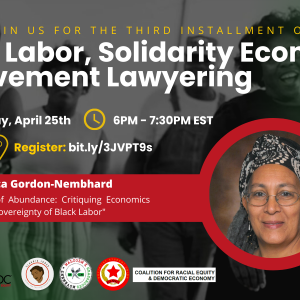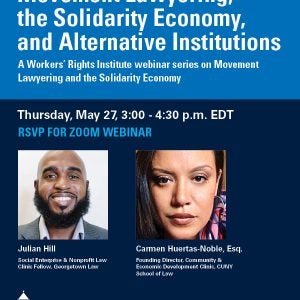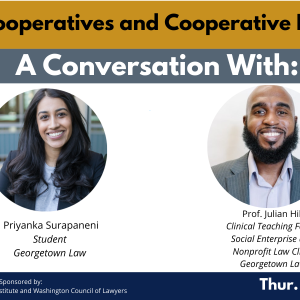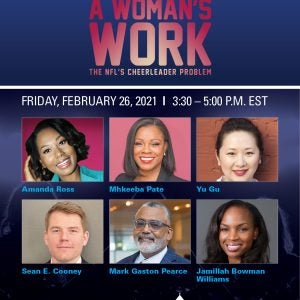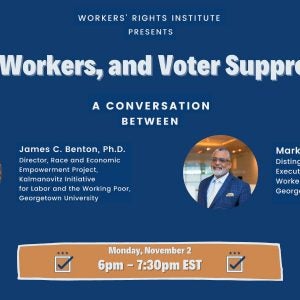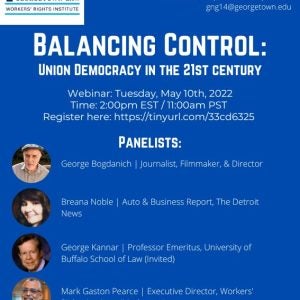 Online
Forced Arbitration, Workers, and Marginalized Communities
Online
Forced Arbitration, Workers, and Marginalized Communities
In this webinar co-hosted by the Center for Progressive Reform and the Workers' Rights Institute at Georgetown University Law Center, experts discussed how workers and historically marginalized communities are adversely impacted by forced arbitration.
Arbitration requires people to go through a private dispute resolution process, is often biased against workers and consumers, and typically slams the courthouse doors on those who are injured or harmed in the workplace. It's a standard condition in most, if not all, non-union employment and consumer contracts, and it's considered “forced” because few consumers or workers are aware that they are agreeing to mandatory arbitration when they sign such contracts. This requires them to resolve many types of alleged violations of state and federal laws through arbitration, including laws passed to protect against harmful and dangerous products, consumer fraud, employment discrimination, and other forms of wrongdoing.
Center for Progressive Reform's report, "Private Courts, Biased Outcomes: The Adverse Impact of Forced Arbitration on People of Color, Women, Low-Income Americans, and Nursing Home Residents" -
https://progressivereform.org/our-wor...
The panelists included:
Mark Gaston Pearce, a visiting professor of law and the executive director of the Workers' Rights Institute at Georgetown University Law Center.
Jamillah Bowman Williams, associate professor of law and faculty director of the Workers' Rights Institute at Georgetown University Law Center.
Sid Shapiro, a professor of law at Wake Forest University and the Board Vice President at the Center for Progressive Reform.
Jennifer Abruzzo, the general counsel at the National Labor Relations Board.
Center for Progressive Reform's Senior Policy Analyst M. Isabelle Chaudry moderated the discussion.
